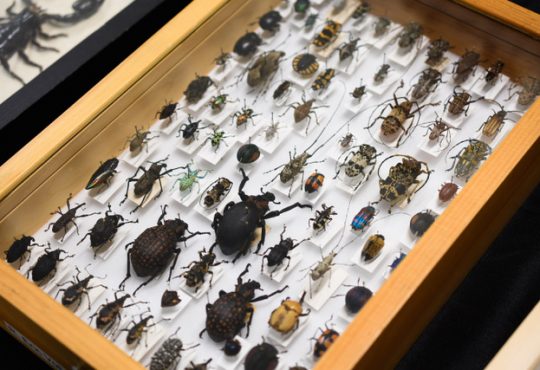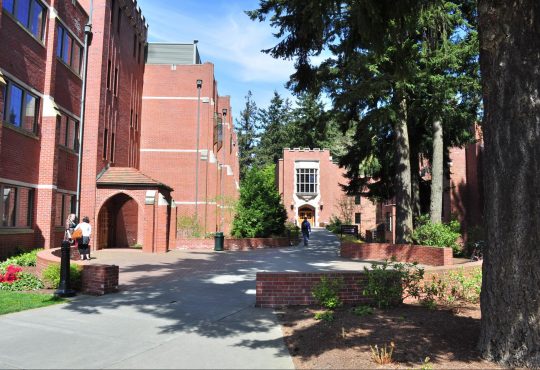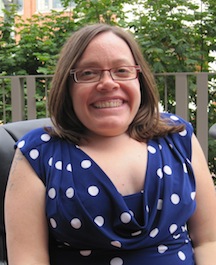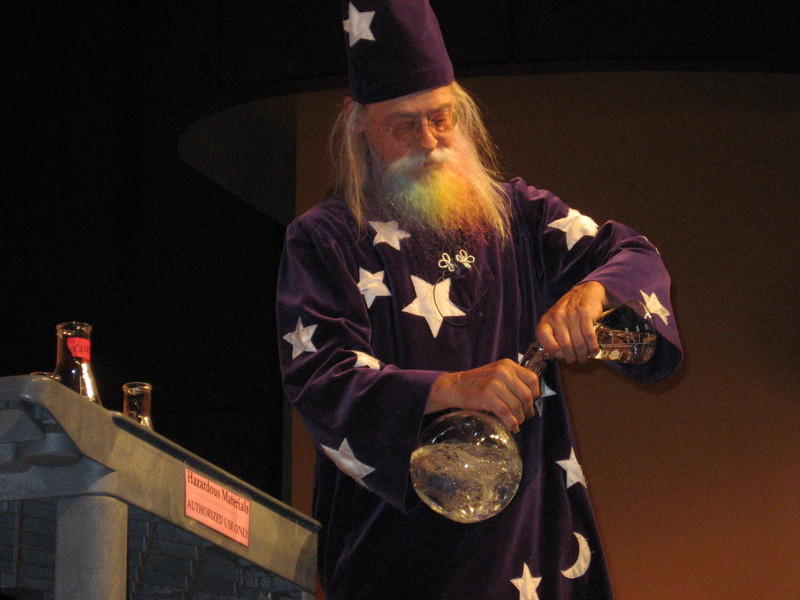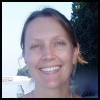
This week I met with Associate Professor Amy Odegard from the Chemistry department to discuss her personal history, how she came to teach here at Puget Sound and what advice she has to offer students.
Q: Where are you from, originally?
A: I am from a small town in Wisconsin called Mondovi, with a population of around 2,000 people.
Q: How long have you been teaching Chemistry at Puget Sound?
A: I started in 2009.
Q: What brought you to Puget Sound?
A: I knew that I wanted to teach at a liberal arts, small college. I was living in California at the time and knew I wanted to stay on the West Coast, and that focuses the number of job ads I looked at. Puget Sound was advertising for someone in my specialty. I did some research into the school and it seemed like a place I would like; so I applied, came for an interview and just loved it. And now here I am!
At a larger institution, my work would have been more focused around research and publishing. Small liberal arts schools tend to emphasis teaching, and I knew that was something I really wanted in a job.
Q: How did you decide to focus your life’s work around chemistry?
A: I always really liked science. Even in high school, Chemistry was my favorite class. When I went to college I decided to study Chemistry; I continued to enjoy what I was doing. I always had great teachers and great professors, and I always found it fun and interesting.
I always felt strongly about teaching; there were multiple paths I could have taken and been happy. I sometimes wonder about if I had pursued medical school or veterinary school maybe that would have been something I liked, but I am very happy with the route I have chosen.
Q: What is your favorite class to teach?
A: In the spring I often teach CHEM 461, which is Metabolic Bio Chemistry. It is fascinating, because it is all about the metabolism and breaks down all the processes that happen in the human body to a chemical level. So it is really fun for students to put together all that they’ve learned in their Chemistry classes and their biology classes and actually see how it works together in a human body.
Q: Biggest pet peeve/frustration in the classroom?
A: I get disappointed when students want to learn the material only because they are going to be tested on it, or want to know exactly what was on each test. Sometimes I wish more students wanted to learn the material because they were genuinely interested in it and not because they want an A or have to know it for the test.
Q: What scholarship are you working on right now, outside of teaching?
A: I do research, so I am currently doing biochemistry research involving viruses, which is what my PhD work was on. I have a few research students, and we are trying to understand how a particular virus attaches to cells, and which specific proteins on the surface of cells the virus attaches to.
It’s amazing to work with students in a research setting, because it is still very much a teaching experience, but in a different way than in the classroom. It is not just about how to do stuff in the lab, but how to ask questions and how to come up with experimental ideas to answer those questions. It’s really rewarding to work with students in the lab and see them progress through the learning experience outside the classroom.
Q: What do you hope students gain from graduating with a degree in Chemistry from Puget Sound as opposed to another institution?
A: Hopefully an intellectual curiosity, a desire to be creative and inquisitive about science.
Q: If you could say one thing to a first year student on the first day of school what would it be?
A: I would tell them to enjoy it: this is an amazing and unique time in their life, and to take advantage of every opportunity that becomes available to them.
Q: And upon graduating?
A: I would say keep an open mind about your future, even if they don’t know exactly what they want to do. Take time, get life experiences and things will figure themselves out along the way.
A lot of students leave college not knowing exactly what they are going to do with life—that’s perfectly normal. You don’t have to rush into anything.
Q: How do you spend your time outside of campus?
A: I really like trail running, mostly with my yellow lab and hound dog mix. I usually run up by Point Defiance.
Q: Favorite place to hang out in Tacoma (Seattle)?
A: I used to love the Mandolin Café, but now that they’ve closed, I most often frequent Point D.
Q: What’s one thing that you don’t think many or most of your students know about you?
A: I think most of my students don’t know that I am from a very small town, I was raised on a farm and definitely didn’t come from an academic environment, and now I am a professor.
PHOTO COURTESY/PUGETSOUND.EDU

